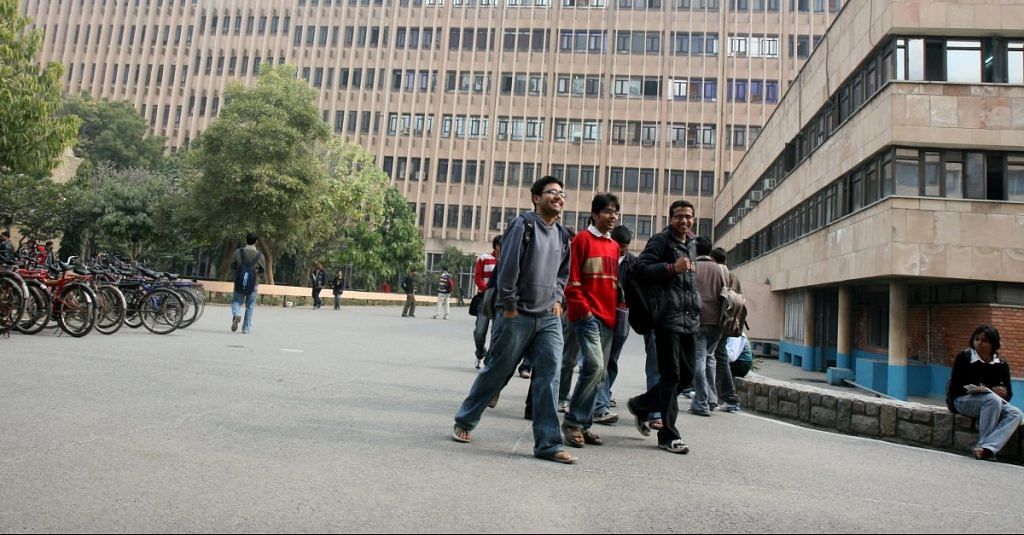The proposed move faced reservations from some IITs in the initial rounds of discussions; Centre gives about Rs 500 cr per year to the older IITs.
New Delhi: In an unprecedented move that aims to change the way in which the Indian Institutes of Technology are funded, the central government has asked all IITs to enter into an agreement with it to make them more “accountable”.
This would mean these premier institutions will have to deliver on certain performance parameters, maintain financial standards, raise their own resources and contribute to “nation building”.
Some IITs have, however, expressed reservations about the proposal during initial discussions, sources told ThePrint.
Central educational institutes get more than Rs 12,000 crore as funding every year from the government. Of this, five older IITs of the total 23 get an average of about Rs 500 crore every year. If the new arrangement goes through, the funds will be linked to outcomes and action plans, the sources said.
A draft MoU has already been circulated to each IIT and a communication was sent to all IIT directors on 16 January informing them that financial grants-in-aid from 2018-19 will be based on annual plans, proposed by the institutes instead of the block grant mechanism in use.
The human resource development ministry has asked all IITs to send in their final proposal for seeking grants by 25 January and the same will be discussed in meetings from 29 January to 6 February.
What this agreement says
The draft MoU, reviewed by ThePrint, calls on each IIT to increase student capacity to meet “growing industry demand”, provide R&D consultancy to boost indigenous manufacturing and “participate in and contribute to nation building through various flagship schemes of the Government of India/State governments requiring technological interventions” to help spur economic growth for the “welfare of the masses”.
Referring to student fees, the MoU also asks the institute to “recover user charges at rates not lower than cost recovery norms” and run as many courses as possible on “self-supporting” mode rather than through “cross-subsidy by way of overcharging from students”.
The draft agreement asks each IIT to seek prior government approval before finalising any understanding or MoU with any foreign organisation and have its accounts audited by internal auditors regularly besides a formal CAG audit.
The MoU also lists “performance evaluation parameters” and annual targets for “deliverables” for each institute.
Performance will be evaluated through a nine-point criteria on academic receipts, income from investments, interest earned, consultancy, overheads, prior-period income, user charges, subsidy and other incomes on a quarterly basis — complete with negative marking.
The consolidated performance evaluation score and findings will be submitted to the institutes’ board of governors every quarter and then sent to the HRD ministry, which will conduct a ‘joint review’ with the institute within three months of the end of the financial year.
The IIT director will be required to ensure compliance with issues raised.
On its part, the HRD ministry will provide financial support to the institute for its recurring and non-recurring liabilities as per government norms, help it raise other resources, provide “guidance and advice on administrative, financial, legal” and other relevant matters, facilitate clearances and approvals as well as dispute resolution with other ministries.
The rationale behind this MoU
Sources in the government said that the move was being made in keeping with the new General Financial Rules 2017 issued by the finance ministry last year for “improving efficiency of expenditure, making the action plan outcome oriented, maintaining financial discipline and measuring performance of the institution on key parameters against the targets set”.
The same model will now on be followed with the National Institutes of Technology (NITs) as well and all other centrally-funded institutes. The University Grants Commission had also asked each central university to sign an MoU to the effect in October 2017.
Ministry officials said that certain clauses of the draft MoU could be changed on a case-by-case basis depending on the concerns that may have been expressed by the IIT concerned.
